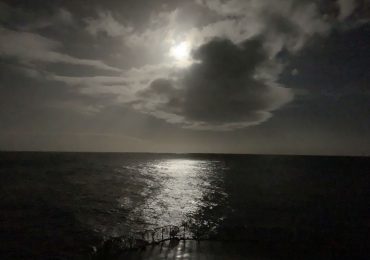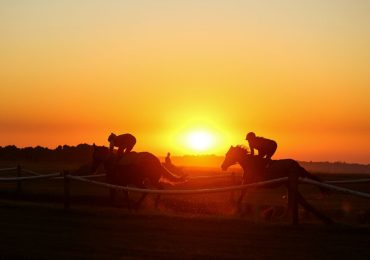The JRB presents new short fiction by Wamuwi Mbao.
~~~
Details
- The house was one of many in a neighbourhood whose trees were once ambitious early sapling pioneers on the unspoilt lot. The house was one of those houses with a breakfast island. The house never got enough sun. The house had a peach tree in the back yard, and the grass didn’t grow under it because of all the rotten peaches. The house had some kind of willow tree in the front yard, and it stood on a spacious corner. The house belonged to a time when you got double lots without having to buy your neighbour out. The house belonged to a time before invincible fortresses with opaque glass and surprisingly obedient plant boxes. The house is a site of illusions. German shepherds with glass-black eyes look out from signs affixed to the garden gate. The house is on a list. There is a neighbourhood watch. The neighbours twitch their curtains every time an unfamiliar car slows. The neighbours like to give to the hospice shop. The house next door has a boat moored alongside the house. Nobody remembers if it ever left, or if it’s always been there. The house has a damp problem, and there are cracks in the walls that require some attention. A man named Absolom arrives every other morning to mow the lawn and carry out the rubbish bins. His duties are not clear. He will be suspected if something happens to the people inside. The man opposite mows his own lawn. He usually has his shirt off, and he uses an old mower. He lives alone. He too is a suspect.
- The town square remembers that here in 1940, several men from the Ossewabrandwag dragged Jubal Wolfsheim from his haberdasher’s shop. The town square remembers how they beat him with chains and fists and how their malice did not abate even as Jubal’s blood ran into the gutter. One of these men, the one who kicked Jubal in the back and encouraged his braying friends to urinate on Jubal as he lay coughing in the street, one of these men became mayor of the town, and sat in an office looking over the town square, believing it had no memory. He was mayor for twelve years, until he felt himself aged and unable to continue, whereupon he retired to a comfortable smallholding in which persons unknown dropped a breeze block on his head repeatedly. The former mayor was mourned in his hometown by those who didn’t remember Jubal Wolfsheim, or the days when Nazis roamed openly.
- The dark twitches. The bird watcher stalks the old parade grounds. A desolate time of day. Just plastic bags and guinea fowl and the occasional dog walker spoiling things. He’s been coming to the grounds for years. He used to come out here with friends, fellow ornithology enthusiasts, but they were gone now. Moved into old age homes because they thought they were growing old and died. Or with children who ignored them and complained to their friends about how the cataracts were getting worse, and felt better about themselves.
- The land for the parade grounds had been the site of some misremembered battle during the first Anglo-Boer conflict. The area had been a native kraal until George Waller and Daniel Brandt had found ore on the river banks. They’d bought off the land with a Transvaal loan and set up a blast furnace on the river. Their steel works made up machinery, and household furniture, and cannon balls and bullets and baby carriages.
- An apparition starts from the trees and strides with common purpose. Two workmen, their overalls tied at the waist, making for the train station. Not the station on the edge of the grounds. The old station will admit no more locomotives. Many dreams left with the train smoke. Press your ear against the bricked windows and you might hear the rusting of the old track.
- The grounds had been dedicated in 1938, and that had been the height of its run. A minister had come out in his Homburg and cut a ribbon. General Smuts had attended a philharmonic concert there in 39. They put up the fence in 41, when the government was worried about the OB. After the war, an enterprising mayor had suggested that the town should put on something like a mini-Rand Easter Show. The first one had been paid for by Wallerbrandt Steel, and the multitudes had come to exchange their money for the chance to be like everybody else.
- Wallerbrandt Steelworks still stands on the edge of the park, like a flash of past prosperity. The yard is full of rubble. The illegal dumping has been halted. They’re thinking of turning it into a lifestyle precinct. Weekend market. Craft beer. If only the right investor can be found. For now, the roof has fallen in slightly, and the bigger windows have been stripped of their frames. Anything that can be carried away, they say. The last Brandt to preside over a running factory had run his legacy into the ground. He had clearly expected it to present no great difficulty. All the houses in town had Wallerbrandt steel window frames, but if they aren’t building any more new houses, who’s going to buy any more steel?
- After the works closed in 89, many of the younger families moved away. Nothing to keep them. In the evenings, you feel the desolation of a failing town. The mould is creeping. The bottle store is the only place that makes money. The old families, those that remain, have walled themselves up. There are mansions on the hill where the lights haven’t been on in years. They subside with each lonely month reluctantly into the past. Nobody drives up there except for the security patrols. Someone said the old folks have died. There are crypts up there. The bird watcher hears these rumours when he passes through the town. He drives a Mercedes 280S that the owner of the petrol station said once belonged to the mayor. Year by year, the old world slips away, and rumour and forgetting take its place.
- The birdwatcher may be the last of his kind. He was born in Paul Roux to a family who grew poplar trees, and he had worked on farms in Lichtenburg and he had done some time in the army, and he had made some friends who he never saw again. He had spent fifty of his years in the town keeping to himself. Now, he arranges himself in the spot he always chooses beneath a cluster of trees on the slopes behind the Wallerzicht estate. He notes the routines of the armed patrol which diesels past every evening at 7:20. From his perch, he sees over the wall and into one of the new houses, where a shiny Audi arrives promptly at 7:25. As happens every night, the driver of the Audi walks into a well-lit house in the French-Modern style, where a young boy sits at a table scribbling away. A woman stands cooking in the kitchen, and the man greets her with an embrace before walking over to the French doors, where he stares, and does not see the rifle or the bullet that carves through the glass and into his forehead.
- On a further shore, the remnants of a savage elite cloister behind the high walls of the Wallerzicht estate. They call it a lifestyle complex, as if there’s anything complex about it. Clubhouse. White trousers. Water features you turn off at 8pm. Old domestic workers nursing babies they won’t live to be condescended to. The babies and their parents are the descendants of a quaint and ongoing error. They are living the misguided dream of the first idiots who took too seriously the hokum of their political leaders. The dream was of decorum and of faith in the rightness of their collective vision. The progeny of that vision were joiners-in. They were people who pretended to enjoy doing their own work while abhorring actual labour. It was a perversion of Calvinism, a denial rooted in building your own fire and scorning whoever had brought you the wood.
- They were a tribe with belligerent nostalgias. What they were no longer allowed to display, they paralleled using rusk tins and rugby. The complexes all had self-congratulatory names like Welgegund and Paradys-Drift. Everyone who lived there wanted to look like they’d always come from money. Most of them were a few generations away from a failed family farm, and so they were obsessed with what their cleaners and gardeners did while they were out. Being lazy themselves, they despised the appearance of laziness in others. Nothing aroused their ill-will more than to see the live-in workers on the grass verges in the late afternoon sun.
- Of the families, there was little to be said. The men were stupid and unimaginative went off to the money factories and business towers every morning. They had shaved their moustaches and rid themselves of the short-sleeved shirts of a few years before. They looked, so they thought, world-class, and they were hopelessly self-congratulating. They sat in shiny buildings that held them above the grubbiness for a little longer.
- The children, meanwhile, were swallowed up by schools their parents hoped would cure them of their more serious failings. They were not innocent. On the contrary, much of the enterprise was carried on for their benefit, and with their knowledge. The schools were serviced by menacing adults who instructed the children on how best to obey, how best to conform, and how best to fit in with what had gone before.
- The women were thin and white, and they visited each other’s impeccable houses to feed on one another’s discontent and organize and discuss what was to be done about the things that were getting out of control. In their eyes, everything was getting out of control. It wasn’t that they thought of those who worked for them as inhuman: it was that they hated having to think of them at all. The good things were sliding further from reach, and they convinced themselves that they had possessed these good things and lost them, and so took out their frustrations on domestic workers they accused of stealing tea, stealing sugar, stealing their children’s affections.
- These women had washed up there because their husbands were the last white regional managers, managing directors, non-specified executives of companies who may or may not have had offices in Perth, who may or may not have done business with parts of government that they would later be forced to deny the existence of. They lived always with the horrible suspicion that their children would not have it so good, would not be able to afford the essential retinue of garden boys and kitchen girls.
- In their public lives, they professed their admiration for earned money, while in their private rooms they said prayers for inherited wealth, for dead grandmothers, bequeathing grandfathers, dying mothers. They gave thanks for fathers who had stashed money away in far-off rental apartments, in discreet bonds and old Mercedes Benzes which could be dusted off and sold for more than their sentimental value. They tutted at people who showed off their wealth, while secretly they dreamed only of more money.
~~~
- Editorial Advisory Panel member Wamuwi Mbao is an essayist, cultural critic and academic at Stellenbosch University.





